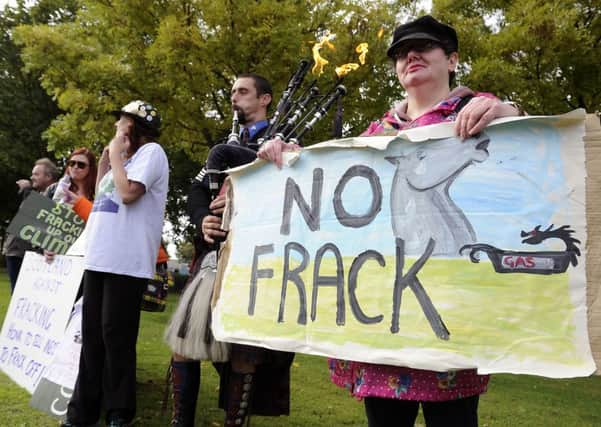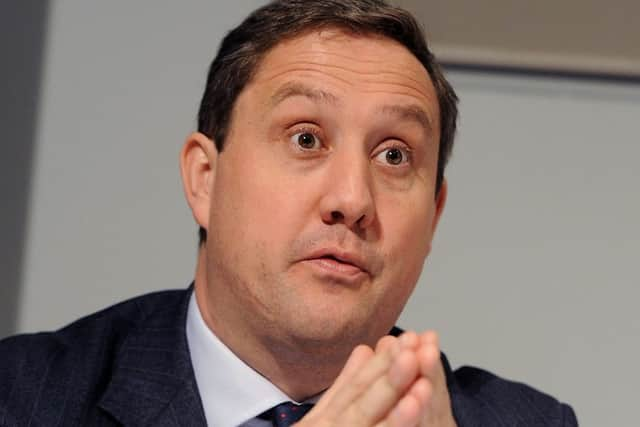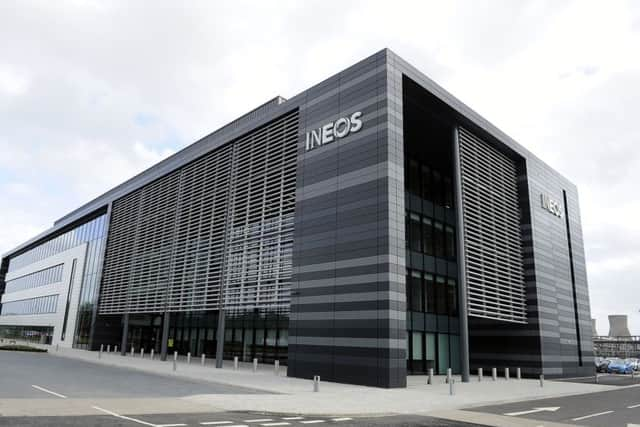Ineos warns fracking ban could lead to mass exodus of workers


On Tuesday, Scottish energy minister Paul Wheelhouse made the Scottish Government’s stance on the practice of hydraulic fracturing – or fracking – crystal clear as he announced it would be supporting an outright ban.
Still smarting from the announcement, Ineos, which operates in Grangemouth, stated the decision could lead to experienced workers leaving the site in their droves for pastures new as North Sea supplies start to dwindle.
Advertisement
Hide AdAdvertisement
Hide AdAt Holyrood on Tuesday, Mr Wheelhouse stated: “We will not support the development of unconventional extraction of oil and gas in Scotland. The decision I’m making today means fracking cannot and will not take place in Scotland.


“It is clear people across Scotland remain firmly opposed to fracking – this government has listened and taken decisive action. The people have spoken, the time has come to move on.”
A parliamentary vote to finalise the issue will take place in the near future – probably after the upcoming parliamentary recess.
Mr Wheelhouse’s decision follows the government commissioning a series of expert reports on the controversial oil and gas extraction technique, and a four-month public consultation launched in January 2017, which showed an overwhelming public support for a ban on fracking – from 60,000 responses, 99 per cent opposed fracking and fewer than one per cent were in favour of it.
Advertisement
Hide AdAdvertisement
Hide AdThose opposed to fracking were concerned over the potential “significant, long-lasting negative impacts on communities, health, environment, and climate”, expressed scepticism about the ability of regulation to mitigate negative impacts and were not convinced fracking could benefit Scotland’s energy mix. However, Ineos, which has invested heavily in the fracking industry and bought majority shares in several Scottish fracking licences, stated the decision means Scotland will miss out on “numerous economic and employment benefits, including an estimated 3100 Scottish jobs”.


The company, which currently imports shale gas from the USA, claimed a thriving Scottish shale industry would not only bring an estimated £1 billion to local communities, but also contribute to the country gaining energy independence.
Ineos Shale operations director Tom Pickering said: “It is a sad day for those of us who believe in evidence-led decision making. The Scottish Government has turned its back on a potential manufacturing and jobs renaissance and lessened Scottish academia’s place in the world by ignoring its findings.
“We lead the world in exploration safety, but I fear we will start to see large numbers of Scottish workers leaving the country to find work as the North Sea oil and gas industry continues to decline.
Advertisement
Hide AdAdvertisement
Hide Ad“This decision, which beggars belief, means gas becomes a cost for the Scottish economy instead of an ongoing source of income. It speaks volumes about Scottish leadership on the world stage and sends a clear and negative message to any future investors in Scotland. Expert reports have clearly stated this technology can be applied safely and responsibly – but it will be England that reaps the benefits.”


Ken Cronin, chief executive of UK Onshore Oil and Gas, was also disappointed by the government’s stance.
He said: “The Scottish Government ignores the advice of its own independent experts and prefers a future where gas will have to be imported with the damage that will do to the economy and the environment.
“It turns its back on job creation, skills development, an increase in tax receipts and investment in communities. Over the last 20 years, 30 wells have been drilled and produce gas within the Central Belt, without any impact to the natural environment or public health.”
Advertisement
Hide AdAdvertisement
Hide AdGMB Scotland’s Gary Smith added: “The reality is that a ban means a future where we will be increasingly dependent on importing fracked shale from the US into Grangemouth.” While the petrochemical firms and industrial unions criticised the government, members of the community, environmental groups and elected officials were full of praise.


Walter Inglis, of Grangemouth Community Council, said: “Our concern was for the health and well being of the community rather than profits for big business. We are obviously delighted the government has done this and taken the appropriate steps against an industry that does not have a very good reputation around the world.”
Councillor Paul Garner, deputy leader of Falkirk Council and environmental spokesperson, said this confirmed the Scottish Government’s priority lies with the communities and their environment – which he said would have been affected by fracking.
Falkirk East MSP Angus MacDonald also welcomed the decision. He said: “Personally, I am pleased this ban has been announced, and that fracking will not go ahead in Scotland. I have always been sceptical of these practices, and have long been of the view if there is any risk whatsoever of environmental damage then fracking should be banned in Scotland.”
Advertisement
Hide AdAdvertisement
Hide AdFalkirk MP John McNally added: “We are blazing the way with innovation in renewable energy and vast reserves of offshore gas have now been made accessible. Why on earth, therefore, would we require fracking or coal bed methane extraction?”
Friends of the Earth Scotland’s Mary Church wanted the Scottish Government to go even further, urging them to commit to pass a law to ban the fracking industry for good instead of just relying on planning powers to effect the ban.